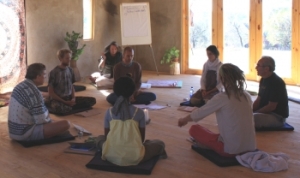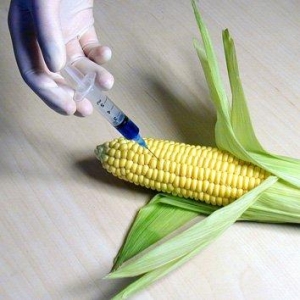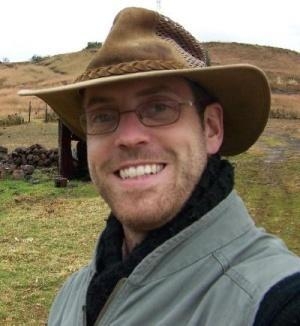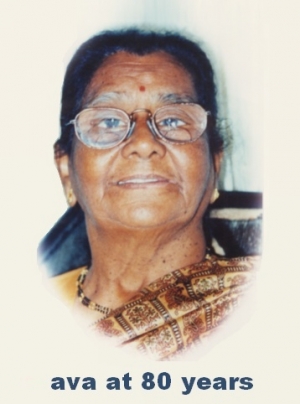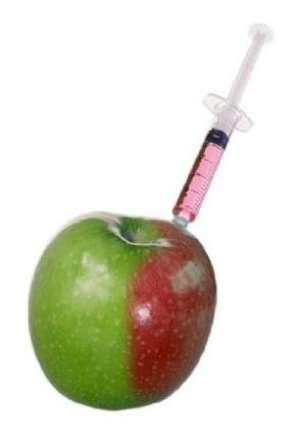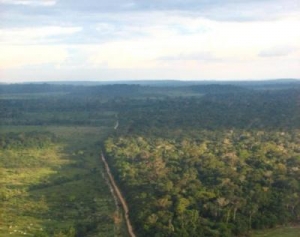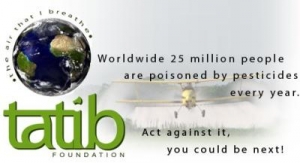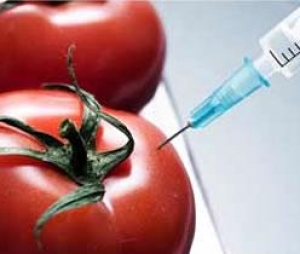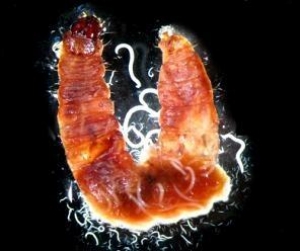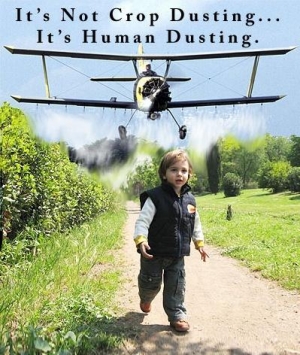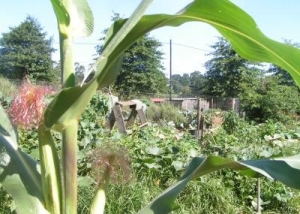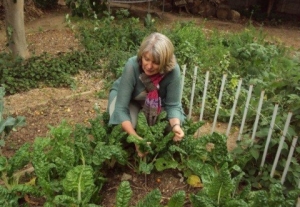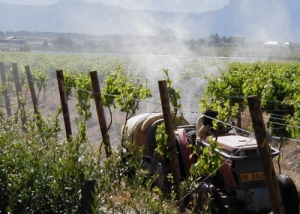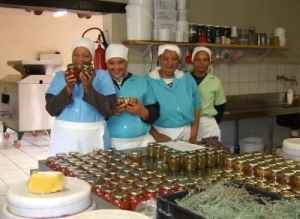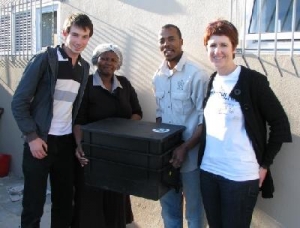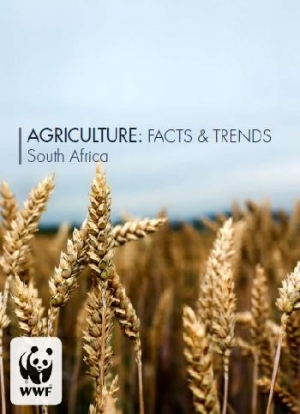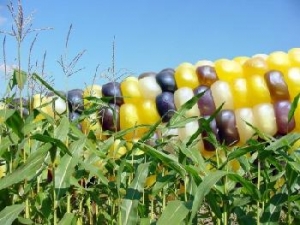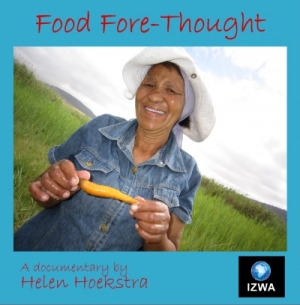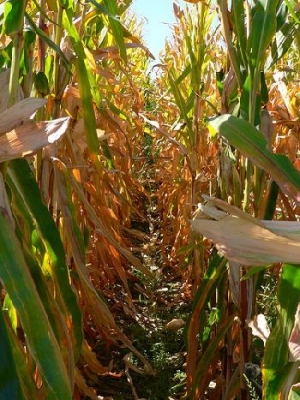Ours is not a better way, ours is merely another way. The first annual Ecovillage Convergence in South Africa took place on 18-20 September 2009. This coming together of kindred spirits had been growing in the hearts of many who share the desire for authentic, earth-based living. The Convergence was intended as a `gathering of tribes` from fellow ecovillages and intentional communities in and around South Africa. The primary focus was to establish a living network through which communities and ecovillages may work together to raise awareness and facilitate the movement towards sustainable earth-based lifestyles around South Africa. The call was put out to all known established and emerging communities, ecovillages and projects countrywide. This intent was synchronistically reinforced when a fellow community planned the same event on the same date!
If a peer reviewed article states that genetically modified plants are harmless, there's a good chance they are knowingly or unknowingly lying. Research published in the leading scientific journal Science Direct, concludes that commercial interests help shape the findings of peer reviewed articles about the health risks of genetically modified plants.
In the southern hemisphere, the first of September is officially the beginning of spring. This is the time to be planting the vegetables that will feed you throughout summer and the early stages of autumn.
My bookcase groans with the weight of green literature. Permaculture for idiots, double digging for novices, you get the picture. You see I am passionate about gardens, food and the planet. My garden should, in theory, be prolific with delicious organic food.
Despite my cerebral imbibing of all knowledge organic, I have never been able to translate that knowledge into a food producing garden. Apart from some herbs and sometimes lettuce I have never found much favour with food gardens.
The European Parliament today voted to strengthen a draft EU law giving member states a new right to ban genetically modified (GM) crops from being grown in their territories.
Greenpeace welcomes this positive outcome, but warns that national bans are no substitute for thorough safety testing at EU level.
Greenpeace EU agriculture policy adviser Stefanie Hundsdorfer said: 'The European Parliament today added real punch to draft laws to protect our farms and food. But let's not forget that GM contamination doesn't respect borders. National bans are no substitute for thorough safety testing at a European level, something the EU is failing to do so far.
The bagged organic baby mixed greens on sale a Whole Foods Market in Bethesda, MD, USA are not very "green" at all. To grow the lettuce, vast amounts of water must be moved from the Colorado River to California, the most hydrologically altered landmass on the planet. The lettuce is picked, packaged, washed and shipped in refrigerated trucks (because it's perishable) roughly 2,800 miles across America. The cost? $3.99. If you believe that the demand for water and oil are going to grow, this five oz. bag of greens will only get more expensive.
On the day of the release of annual industry-sponsored figures, a new report from Friends of the Earth International reveals that the cultivation of genetically modified (GM) crops across Europe continues to decline ' with an increasing number of national bans, and decreasing numbers of hectares dedicated to GMOs [1].
A public meeting organised by The Air That I Breathe Foundation (TATIB) with the Stellenbosch city manager to discuss the issue of spray drift stalled this morning when planning, property and integrated human settlements director Basil Davidson, who deputised for the city manager at short notice, refused to proceed with the meeting until members of the media had left the room.
All South Africans need to act urgently and immediately to the proposed regulations in the Consumer Protection Act (CPA) governing the labelling of Genetically Modified (GM) food. The regulations are weak and undermine the consumer's right to know and consumer choice, while addressing the needs of big business instead.
Jeanne de Waal is propvol energie. Oppad terug na haar werksplek in die Department Bewaringsekologie- en Entomologie by die Universiteit Stellenbosch, gesels sy wyd en syd. Sy is op 27-jarige ouderdom besig met haar tweede jaar van haar PhD in Entomologie. Gewapen en gereed, begin sy met die hulp van 'n Powerpoint-aanbieding 'n passievolle omskrywing van haar projek te gee.
The use of toxic agricultural sprays ' even in towns - seems set to continue unabated in our country, in spite of urgent requests from citizens, neighbours and parents of children on farm schools, in spite of the health risks they pose to vulnerable farm workers, the ground water and biodiversity. In a letter by medical doctor Johan Minnaar from Groblersdal to Rapport newspaper, he lifts the veil on the ignorance which drives this industry.
For many years, Petronella Gasa has dreamed of establishing a flourishing food garden at her school ' Cedara Primary. After attending a 4 day Permaculture Workshop run by SEED in 2008 and many workshops on compost making and companion planting at Dovehouse Organic Farm, she found the inspiration she needed to make her dream come true.
It was almost time for the Global Working Day for Earth, when the largest number of people across the planet ever in living memory would be doing something for the earth'
My lucky number 7 had arrived just before the auspicious 10-10-10 date and this day I was a year older. And a year more grateful to still be granted my share of this planet's precious resources.
The spraying of glyphosate herbicide on genetically modified (GM) Roundup Ready soya is coming under fire in Argentina from scientists and residents, who say it causes health problems and environmental damage. GM soya is genetically engineered to tolerate spraying with glyphosate, the most common formulation of which is Roundup®. The Roundup Ready gene enables the farmer to spray the herbicide liberally onto the field, killing weeds but allowing the crop to grow on.
Much has happened over the last few years, but what has been consistent and exciting is the overall positive move to more ethical and sustainable farming practices, and the overwhelming need of many people to live more ethical and sustainable lives.
Enviroworks, a consulting firm specializing in environmental management, wanted to do something in response to email requests received during World Environment Week to give back to less resourced communities. What better mechanism, they thought, than to help sustain the magic of soil?
In celebration of the International Year of Biodiversity and World Environment Week, The World Wide Fund for Nature unveiled its vision for Living Farms: An agricultural sector which farms in balance with nature. This vision is supported by two new products available from WWF. The Living Farms Reference, a comprehensive compilation of current legislation and better practices already demonstrated in many of the leading agricultural sectors and an overview report of the current status quo entitled Agriculture Facts and Trends, South Africa.
In the last four months, South Africa has dumped almost 300,000 metric tons of genetically modified (GM) maize onto Kenya, Mozambique and Swaziland. According to a paper released by the African Centre for Biosafety (ACB) titled "A Good neighbour? South Africa forcing GM maize onto African markets and policy makers", these are the first documented cases of commodity exports of GMOs from South Africa to the rest of the African continent, and set a worrying precedent. Even Kenya, which is of vital strategic importance to the biotech industry in Africa, and where the vast majority of the GM maize ended up, severely lacks the capacity to ensure the safe handling and monitoring of such a huge volume.
A new documentary, Food Fore-Thought (an IZWA production), sets out to open our eyes to the broad scope of possibilities around the growing and production of the food we eat. It also enlightens the viewer about the need to stand up for one of our most basic human rights ' the right to safe, nutritious food that heals, and harms none.
South Africa is the only country in Africa that has allowed the genetic modification of food crops to date and the only country in the world to have allowed the modification of a staple food - maize. Great numbers of consumers around the world have rejected GM food because it is not labeled as such in shops, and its effects are unpredictable.

